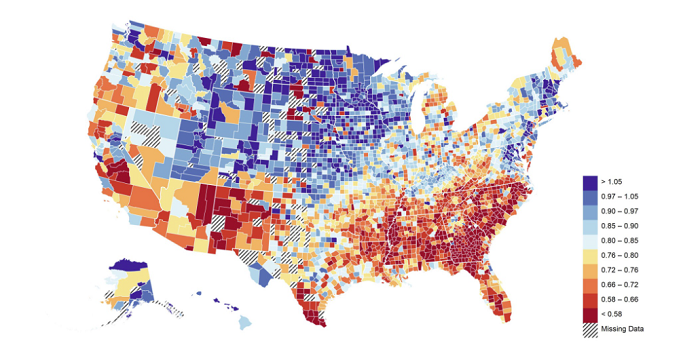SOCIAL
Meta Shares New Insights into the Economic Value of Social Connectedness, Based on Platform Data

Meta has partnered with researchers from Harvard and Stanford on a new report which looks at how social connectedness can influence economic opportunity – i.e. does being connected to friends with higher incomes then facilitate more opportunity for others.
Which, it very likely does. There are various reasons for this, stemming from access to direct support/capital, to simply having accessible models upon which to base your own ambitions. The new report essentially underlines this, which Meta says is a good example of how its data insights ‘can be used for societally significant research when shared responsibly and in a way that protects people’s privacy’.
In other words, not every academic study ends up being a Cambridge Analytica type calamity.
For the study, the researchers partnered with Meta to analyze privacy-protected data from US Facebook and Instagram users.
As per Meta:
“The researchers found that social connections play an important role in helping people achieve economic mobility. Neighborhoods that foster more connections between low-income and high-income people tend to have higher levels of mobility.”
Most interesting here is that Meta has also made the data available for public use, so you can look through the various connectedness data points to determine the level of resulting economic opportunity in your region.

As you can see in this chart, you can sort the data by county or ZIP code, while you can also filter the info by high school or college, which shows how connected people from different economic backgrounds are in your region.
The higher the mix between low and high-income students (in this case), the greater the opportunity, based on modeling which shows that stronger connection leads to enhance economic mobility.
“The research also highlights why it’s crucial that policymakers take social factors and interventions into account when designing policies, such as the need for mentorship programs in under-resourced schools to complement financial support.”
In other words, the more bridges that we can build between lower and higher income tiers, the greater the opportunity we can facilitate, with this new data shining a light on the key regions that need improvement in this respect.

These are some interesting insights, more of specific use for higher-level bureaucrats and researchers, but also of note for those considering, say, where to send their kids to school.
But the main purpose, from Meta’s perspective, is to underline the value of its data for academic use, in a safe way that avoids sharing private user information.
Which is undoubtedly true – Meta has the largest database of human insights in history, and if it can provide a window into such, without exposing people’s private info, that can be a hugely valuable resource, in a wide range of ways.
You can check out the full ‘Social Capital Atlas’ overview here.


















You must be logged in to post a comment Login